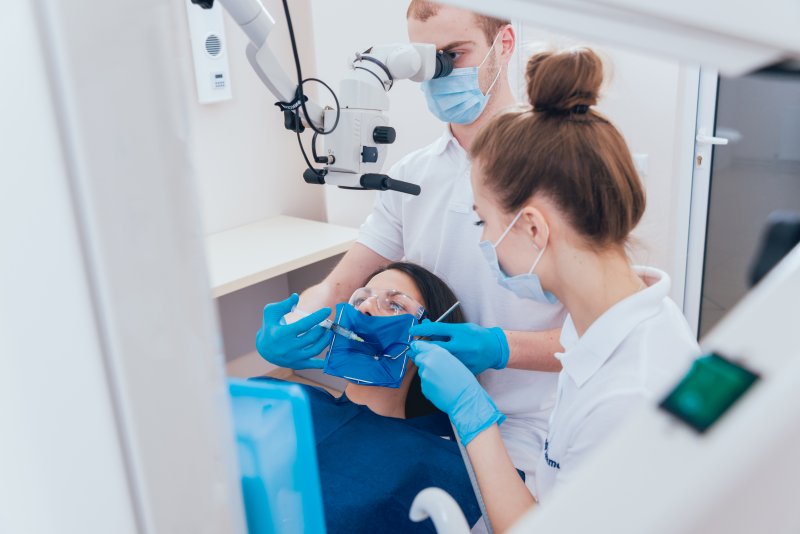
Preparing for a root canal isn’t too bad once your dentist debunks the countless myths claiming this procedure is painful. You know treating your damaged or decayed tooth will not only save it from extraction but also alleviate the discomfort because its source – the infection – will be removed. But what can you expect after the procedure is complete? Keep reading to discover what you should and shouldn’t do as well as how soon you’ll feel like your normal self again.
Common Occurrences After a Root Canal: What You Can Expect
Immediately following a root canal, it’s natural for the body to become inflamed. This post-operative occurrence is completely normal, as it’s a sign that you’re trying to heal. It can take time to decrease, so don’t expect it to go away after a day or two.
Also, some minimal discomfort is expected but can be easily treated with an over-the-counter pain reliever. You can also reduce soreness by being mindful about what you eat, as hard foods may not feel good to consume.
Which Foods to Eat & Which Ones to Avoid
The rule of thumb when it comes to eating after a root canal is to stick to soft foods initially. Your mouth will be sore, so trying to consume hard, crunchy, or even chewy meals can become uncomfortable and put your affected tooth at risk of further damage.
When choosing foods to eat, incorporate these into your diet:
- Yogurt
- Oatmeal
- Mashed potatoes
- Cooked pasta
- Soup
Those you should avoid include:
- Hard bread
- Tough meat
- Raw fruits and vegetables
- Caramel or other sticky/chewy candies
- Chips
- Crackers
Tips to Make Recovery Easier
To ensure that you recover swiftly and successfully, you can expect your dentist to provide a list of instructions you can follow. These tips will help increase your chances of returning to your normal self much sooner:
- Do not attempt to eat anything while your mouth is numb from anesthesia.
- Take an OTC or prescription medication as directed.
- Continue to clean your teeth and gums as normal but be careful when brushing and flossing around the affected tooth.
- Eat soft foods to make consumption easier.
- Do not chew on the side of your mouth with the affected tooth.
- Do not smoke or use tobacco products, as this slows healing.
- Keep any follow-up appointments so that your dentist can examine the treated tooth and make sure it’s healing correctly.
By following these instructions and allowing your body to move through the healing process, you can avoid complications and be on your way to enjoying a healthier, natural smile.
About the Author
Dr. Deborah Bishop graduated from Birmingham Southern College with a bachelor’s degree in biology. She then went on to attend the University of Alabama School of Dentistry where she earned her Doctor of Dental Medicine. After completing her studies, she attended an endodontic residency at the University of Alabama at Birmingham. Dr. Bishop is dedicated to helping her patients retrieve their smiles. If your smile needs saving, contact us at (256) 882-5161 to learn more about how we can help.
